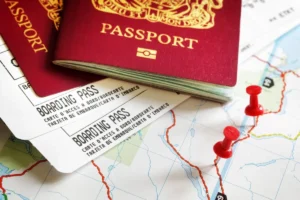Traveling is one of life’s greatest joys, offering new experiences, unforgettable memories, and the opportunity to explore the world. However, it also comes with uncertainties — from flight cancellations and delays to lost or stolen luggage. These unpredictable events can quickly turn a dream trip into a stressful experience. That’s where travel insurance comes in as a vital safeguard. Travel insurance specifically designed to cover lost luggage, travel delays, and cancellations ensures peace of mind, financial protection, and support when you need it most.
Understanding the Importance of Travel Insurance
When planning a trip, many people focus on booking flights, accommodations, and activities while overlooking the need for insurance. Travel insurance is more than just an optional add-on. It’s a comprehensive safety net that covers various potential issues travelers may face, especially during international travel.
Among the different components of travel insurance, coverage for lost luggage, delays, and cancellations stands out due to how commonly these events occur. With global air travel back in full swing, airlines are seeing an increase in luggage mishandling and delays due to overcrowded airports and unexpected weather disruptions.
What Is Covered in Lost Luggage Insurance?
Lost luggage coverage typically applies when your checked baggage goes missing, is stolen, or is permanently lost during your journey. This coverage often includes compensation for:
- The replacement value of the lost items.
- Costs for essentials (clothing, toiletries) if your luggage is delayed for more than a specified number of hours.
- Assistance in locating lost bags.
The insurance company may ask for proof of ownership and receipts for high-value items, so it’s a good idea to keep records of what you pack or even take photos of your belongings before traveling.
Additionally, many policies also provide some coverage for theft or damage that occurs during transport. This can be especially helpful if you are carrying electronics, expensive clothing, or travel gear.
Travel Delay Coverage: What You Should Know
Delays can throw off your entire travel plan. You might miss connections, hotel reservations, or even pre-booked tours. Travel insurance that includes delay coverage compensates you for extra expenses incurred due to an unavoidable delay in your journey.
This may include:
- Hotel accommodations.
- Meals during the waiting period.
- Transportation costs for alternate travel plans.
Travel delay coverage kicks in only after a delay exceeds a minimum time threshold, typically three to twelve hours. This policy ensures that your additional out-of-pocket expenses don’t go uncompensated. It’s particularly helpful for long-haul international travel where delays are more likely due to longer layovers, weather conditions, or security issues.
Trip Cancellation Insurance: Why It Matters
Life is unpredictable. Illness, family emergencies, or even political unrest in your destination can force you to cancel a long-anticipated trip. Trip cancellation insurance helps you recover your prepaid, non-refundable trip costs if you need to cancel your trip before departure for a covered reason.
Typical covered reasons include:
- Illness or injury (to you or a close family member).
- Death in the family.
- Natural disasters or severe weather.
- Jury duty or military deployment.
- Terrorism or safety warnings in the destination country.
Some policies even offer “Cancel for Any Reason” (CFAR) upgrades. These allow you to cancel your trip for personal reasons not listed in the standard policy. However, CFAR coverage is more expensive and typically reimburses only a portion of your prepaid expenses.
Trip Interruption Coverage: An Extension of Cancellation Insurance
Trip interruption coverage, often bundled with trip cancellation, protects you if you need to cut your trip short after it has begun. It covers unused portions of your trip and pays for additional expenses to return home early. Reasons may include family emergencies, becoming seriously ill or injured during your travels, or situations that make it unsafe to remain at your destination.
Common Exclusions You Should Know
While travel insurance offers a wide safety net, it doesn’t cover every situation. Knowing what isn’t included can save you from frustration later. Common exclusions include:
- Loss of luggage due to negligence or unattended baggage.
- Delays caused by strikes already known before the trip.
- Cancellations due to a change of heart or financial issues (unless you purchased CFAR).
- Pre-existing medical conditions, unless specifically included.
- Always read your policy carefully and talk to your insurer if you’re unsure what is and isn’t covered.
How to Choose the Right Travel Insurance Plan
With so many options available, choosing the right travel insurance plan can feel overwhelming. Start by considering the type and length of your trip. Are you traveling for business or leisure? Domestic or international? Are you carrying valuables? Is your destination prone to bad weather?
Compare different providers and read reviews about their claims process and customer support. Look for policies with a strong reputation for quick reimbursements and reliable service during emergencies. Consider purchasing insurance through a third-party proviPlease consider filing a report with the airline or local authorities if necessary. Please retain all receipts for expenses such as food, lodging, or toiletries, and reach out to your insurer at your earliest convenience.
Lay it down; act quickly. File a report with the airline or local authorities as needed. Keep all receipts for expenses like food, lodging, or toiletries, and contact your insurer as soon as possible. Many insurance providers have apps or online portals to simplify the claims process. Providing detailed documentation will help expedite your claim and ensure a smoother process.
Real-Life Scenarios Where Insurance Helped
Imagine Imagine if a snowstorm cancels your flight home, requiring you to spend an additional two days in a hotel.ying for new clothes, toiletries, and possibly replacing expensive electronics. Or picture your flight home being canceled due to a snowstorm, forcing you to stay an extra two days in a hotel. These real-life scenarios are not uncommon, and travel insurance can turn a frustrating setback into a manageable inconvenience.
Final Thoughts
Travel insurance for lost luggage, delays, and cancellations is not just an optional luxury — it’sThe assurance of protection can significantly impact your journey experience.tBefore you leave for the airport, check that your travel insurance is as secure as your passport.ke all the difference in how you experience your journey. So before you zip up your suitcase and head to the airport, make sure your travel insurance policy is just as secure as your passport.




